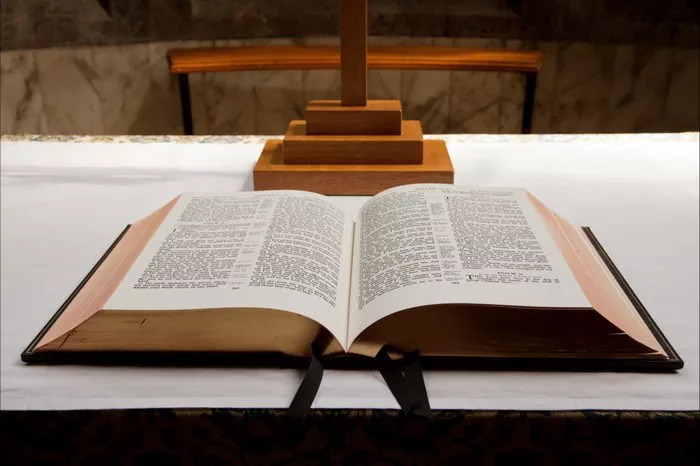The Gospel of Matthew, one of the four canonical gospels in the New Testament, is renowned for its rich narrative of the life, teachings, death, and resurrection of Jesus Christ. Among its chapters, Matthew 22 stands out as a pivotal passage encapsulating some of the core messages of Jesus’ ministry. In this article, we delve into the depths of Matthew 22 to uncover its main message and its enduring relevance for believers and seekers alike.
Context and Setting
Before delving into the specifics of Matthew 22, it’s essential to understand its broader context within the Gospel of Matthew. This chapter unfolds during the final week of Jesus’ earthly ministry, a period marked by intense conflict and confrontation with religious leaders in Jerusalem.
In the preceding chapters, Jesus had been engaged in a series of debates and parables, challenging the religious establishment and proclaiming the coming of the kingdom of God. Matthew 22 begins with Jesus’ entry into Jerusalem, where he is greeted with acclaim by the crowds but faces increasing opposition from the religious authorities.
The Great Commandment
The central message of Matthew 22 is encapsulated in what theologians often refer to as the “Great Commandment.” When asked by a Pharisee which commandment in the Law is the greatest, Jesus responds:
“‘Love the Lord your God with all your heart and with all your soul and with all your mind.’ This is the first and greatest commandment. And the second is like it: ‘Love your neighbor as yourself.’ All the Law and the Prophets hang on these two commandments.” (Matthew 22:37-40, NIV)
In these verses, Jesus distills the essence of the entire Old Testament law into two fundamental principles: love for God and love for neighbor. This concept of love as the foundation of moral and spiritual life is not new to Jewish tradition, but Jesus’ interpretation and emphasis give it renewed significance.
Love for God
The first part of the Great Commandment calls believers to love God with all their heart, soul, and mind. This love is not merely emotional but encompasses the totality of one’s being—heart representing the seat of affections, soul symbolizing the innermost self, and mind signifying intellectual faculties.
Loving God involves wholehearted devotion, intimate communion, and unwavering allegiance. It implies recognizing God’s sovereignty, worshiping him in spirit and truth, and aligning one’s will with his purposes. This love for God is not passive but dynamic, manifesting in obedience, worship, and service.
Love for Neighbor
The second part of the Great Commandment extends the scope of love beyond the vertical dimension (love for God) to the horizontal dimension (love for neighbor). Jesus declares that loving one’s neighbor as oneself is akin to the first commandment in importance.
This radical ethic of love challenges conventional norms and transcends boundaries of ethnicity, nationality, and religion. It encompasses not only acts of kindness and compassion but also a genuine concern for the well-being and dignity of others. Love for neighbor entails empathy, solidarity, and active engagement in addressing social injustices and alleviating suffering.
The Parable of the Wedding Banquet
Following his exposition of the Great Commandment, Jesus further illustrates its implications through the parable of the wedding banquet (Matthew 22:1-14). In this parable, a king hosts a lavish feast and invites guests to attend, but they refuse to come, preoccupied with their own pursuits.
In response, the king extends the invitation to others, including the marginalized and outcasts, reflecting God’s inclusive love and the universal scope of the gospel. However, the parable also highlights the consequences of rejecting God’s invitation and the necessity of responding with humility and repentance.
Challenges to Religious Hypocrisy
Throughout Matthew 22, Jesus confronts the religious leaders of his time, exposing their hypocrisy and challenging their legalistic interpretation of the law. He rebukes the Pharisees and Sadducees for their outward piety and adherence to rituals while neglecting justice, mercy, and compassion.
In the exchange with the Pharisees over paying taxes to Caesar (Matthew 22:15-22), Jesus emphasizes the importance of rendering to God what is God’s, affirming the need for spiritual fidelity amidst earthly obligations. Similarly, in the encounter with the Sadducees regarding the resurrection (Matthew 22:23-33), Jesus unveils their ignorance of Scripture and reveals the continuity of life beyond death.
The Authority of Jesus
In Matthew 22:41-46, Jesus turns the tables on his opponents by posing a question about the identity of the Messiah. He challenges their understanding of the Scriptures and asserts his own authority as the Son of David and the Son of God.
This passage underscores the pivotal role of Jesus in God’s redemptive plan and invites readers to acknowledge his lordship and follow him wholeheartedly. It sets the stage for the climactic events of Jesus’ crucifixion and resurrection, which ultimately vindicate his claims and inaugurate the fulfillment of God’s kingdom.
Implications for Contemporary Faith
The message of Matthew 22 reverberates with timeless relevance for believers in every age. It calls us to a radical reorientation of our priorities, placing love for God and neighbor at the center of our lives. It challenges us to transcend religious formalism and embrace an authentic faith characterized by love, humility, and compassion.
Moreover, Matthew 22 confronts us with the reality of choice—the choice to accept or reject God’s invitation to participate in his kingdom. It reminds us that our response to Jesus’ call has profound implications for our present and eternal destiny.
Conclusion
As we reflect on the profound message of Matthew 22, may we be inspired to embody the love of Christ in our thoughts, words, and actions. May we seek to love God with all our being and to love our neighbors as ourselves, thereby fulfilling the essence of the law and bearing witness to the transformative power of the gospel.


